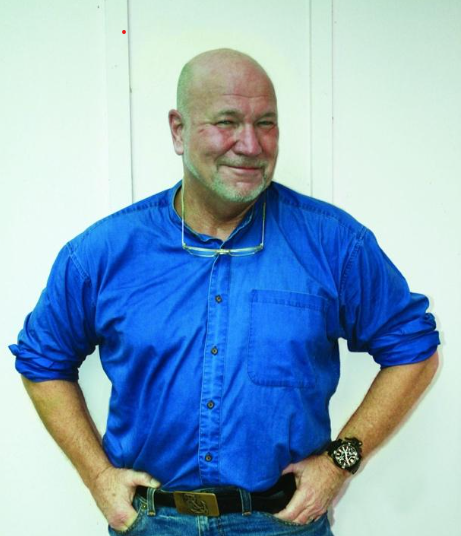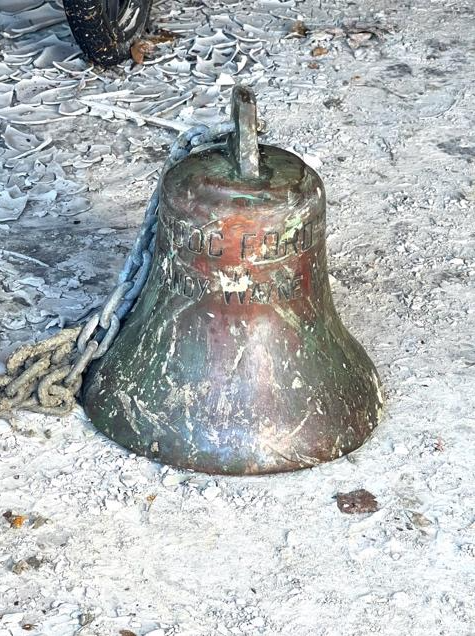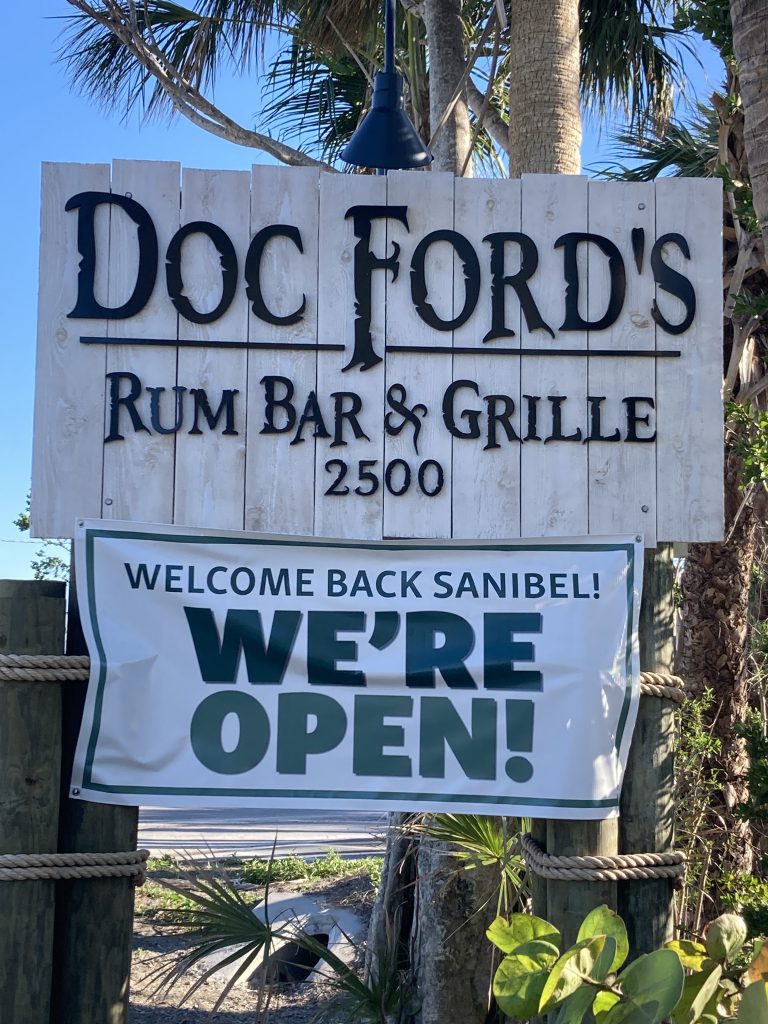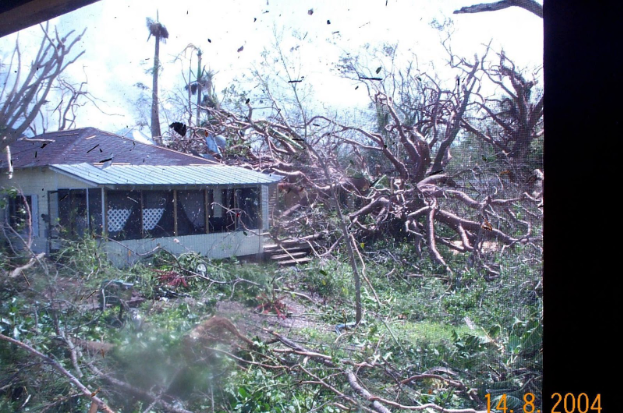Why do people defy evacuation orders? The answers involve the psychology of risk. Hurricane Ian’s destruction may help change Floridians’ propensity to ride out hurricanes.
The nine-foot storm surge came charging down like a river rapid of black, greasy water.
Cormorants and other birds tumbled through the trees and were swept down the inky stream.
According to folklore, “the birds, the fish — they leave,” said Randy Wayne White of Sanibel Island, Florida’s beloved and bestselling author of the Doc Ford series of novels and partner in several restaurants of the same name. “But the birds didn’t have a clue.”
Hurricane Ian, the Category 4 storm that barreled into Sanibel and other southwest Florida barrier island on Sept. 28 2022, has been named the deadliest hurricane to hit the state since 1935, with 149 people confirmed dead. Most drowned. Others were killed by other misfortunes like a falling ceiling or losing oxygen tanks in the power outages. All had one thing in common. They’d decided not to evacuate.

White, 72, stayed in his Sanibel Island home with his wife the singer-songwriter Wendy Webb, a brand-new generator, and an amateur radio license. Nearly 20 years before, he’d ridden out Hurricane Charley in his 1921 yellow heart pine home in Pine Island, now owned by his son.
Today, White has harrowing and heroic stories to tell. In the days following Hurricane Ian, he used his ham radio to call helicopter pilots and direct them to neighbors in need. His decision, however, raises the question of whether his fans might look up to him and decide that riding out a hurricane is a reasonable choice for people who are prepared and experienced.
To the contrary, he said, he would never do it again.
In Charley, “the tornados, they came just snaking across the bay like cavalry soldiers with an astounding diesel engine roar. I thought it cannot be any worse,” White said. “Well, I was wrong.”
White blames only himself for the decision. But he said what he calls “the Irma effect” played a role. Experts who study the psychology of risk including natural disasters say that it is one of a handful of fundamental challenges in getting people to evacuate.


Thirteen years after Charley, in 2017, Category 5 Irma drew a bead on Florida. The day before landfall on Sept. 9, then-Gov. Rick Scott, put out an urgent public statement: “If you have been ordered to evacuate, you need to leave now,” Scott said. “Do not wait. Evacuate. Not tonight, not in an hour. You need to go right now.”
So White and his wife, Webb, packed-up, left Sanibel and fled to a cabin in Central Florida. Irma walloped them there with a direct hit. It took two days and chainsaws for the couple to cut their road clear.
For other Floridians, the ensuing mass evacuation led to millions being stuck in traffic and overcrowded shelters. The next day to everyone’s surprise, the hurricane weakened to tropical storm status, doing less damage than feared. It was the memory of Irma, White said, that influenced his and his neighbors’ decisions to ignore evacuation mandates during Hurricane Ian.

It’s a tricky balance for emergency managers, said Tom Larsen, senior director for CoreLogic, a data and logistics firm that analyzes risk. “One of the biggest concerns is to not be overly cautious and call for too many evacuations, because you’re going to lose the confidence of the people who otherwise would evacuate,” said Larsen, acknowledging there are some people who will never evacuate.
“Staying in your own house,” he said, “is the worst thing you can do.”
Brian McNoldy, a senior researcher in the University of Miami’s Department of Atmospheric Science, said there are complex reasons why people may decide to do the worst thing. Those include a track record of what has happened to someone in past hurricanes, or challenges such as being a caregiver.
“And, there are people who just can’t afford to leave,” McNoldy said.
Indeed, evacuation challenges go beyond personal choice. While Florida’s per-capita personal income is around $52,000, more than half the state’s counties have a much lower average between $22,000 and $44,000, according to the University of Florida’s Bureau of Economic and Business Research. Many Floridians simply don’t have the privilege to leave work for three to four days, fly or gas up to drive out of state, or pay for a hotel.
“It’s dismissive to say, well, why didn’t they just leave — didn’t they know this is going to be a devastating storm,” said Amber Silver, an assistant professor in the University of Albany’s College of Emergency Preparedness, Homeland Security, and Cybersecurity. “Many people knew that it was going to be devastating, but they couldn’t do anything about it.”
Fleeing his trailer park in Iona, an unincorporated area in southwestern Lee County, resident Sammy Martinez evacuated to a nearby apartment. As the floodwaters began to rise, he tried climbing out a window, but got stuck. He remained lodged for several hours without water and surrounded by mud. Three days after the hurricane, Martinez said, Iona neighbors began to feel as if help would never arrive. Around 8 o’clock one night, they all heard a gunshot.
The man who pulled the trigger on himself was around 60 years old.
“He didn’t have anything left, you know, and with the little that he had he could not see another way to continue,” Martinez said.
In another Lee County neighborhood, a 65-year-old man was found hanging inside his home. A suicide note found by his body referred to his “ruined house.”
“There is a sense of identity, a sense of pride, a sense of all of these positive feelings that we associate with our loved place,” said Silver
Some people don’t want to leave their house because they’re afraid of what will happen to it when they’re gone. Leaving a place behind may mean never returning.
Others have pets and don’t know what to do with them or where to take them during the storm. Animal companions can be like family members to their owners, who may choose to stay and protect them during evacuation mandates.
And many, as was the case during Hurricane Ian, are physically incapable of leaving without help. Florida State Medical Examiner records show that the average age of those who died in Ian was 73.
“When you have 12 hours or 24 hours before landfall, we do not have the resources, or the people power, or the logistics to evacuate necessarily everyone who wants to be evacuated,” said Silver.
In this time of societal distrust of experts, still others do not trust the forecast, said McNoldy. They may believe the hurricane has been exaggerated, or be convinced that it won’t harm them, so they downplay the threat and thus refuse to act. “The human-animal still likes to make judgments on our own,” said Larsen. “We don’t like to be told what to do.”

Meanwhile, a culture of “hurricane parties,” hurricane drink specials and hurricane cakes could reinforce cavalier attitudes about approaching storms. Florida-based grocery chain Publix Super Markets confirmed the chain no longer sells the hurricane cakes that were shared on social media as Ian approached. It could be that Florida is finally undergoing a psychological shift from hurricane parties and riding out storms to being willing to leave everything behind.
From the time of the Calusa, Native Americans who populated Southwest Florida before the Spanish colonists, people have migrated from barrier islands as shorelines moved and coastal living became riskier, Larsen said. “Homes weren’t built to last forever; they were built to be affordable,” he said. “So, they break.”
If they do break, said Silver, those who stay might have to write their Social Security number in Sharpie on their body to be identified.
After Hurricane Ian, Martinez, who was stuck in the window, moved to Texas to spend some time with family. Yet, moments after telling his evacuation story he said with confidence: “Of course, I will come back to Florida.”
“We’re just a curious, wonderful species,” said White. “And our memories tend to be short-term.”
 Living on the Edge
Living on the Edge